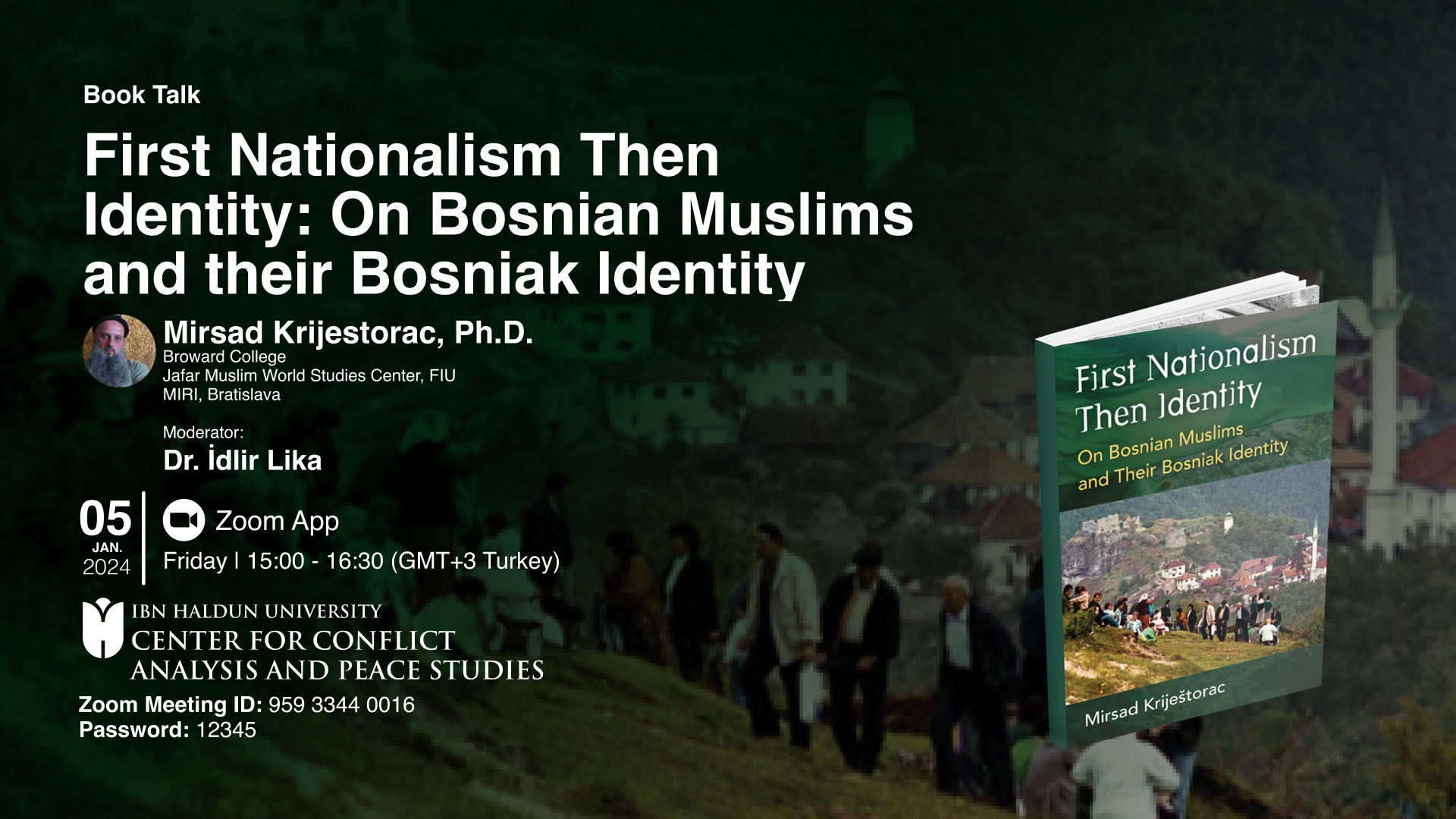


The Center for Conflict Analysis and Peace Research organized a book talk with Dr. Mirsad Krijestorac on his book “First Nationalism Then Identity: On Bosnian Muslims and their Identity”.
This discussion with the author about his book, which highlights the interactions between phenomena of nationalism and identity, and shows empirically and historically, that nationalism is a process that comes before a new salient identity for a population. After defining the main variables, Dr Krijestorac explained the importance of finding the appropriate case to observe such interactions where the assumptions and conditions of one case are not used to help explain the emergence of that condition in the case. That is why the observation of the central interaction in his book was done through an ongoing case study of Bosnian Muslims and their salient Bosniak identity, which re-emerged during the Bosnian war in the 1990s. Dr. Krijestorac pointed that situation of war and loosening of previous social interdependencies provided a possibility for the Bosnian Muslims to change and emerge into a new phase of groupness as a political nation. The author reiterated that the Muslims of the former Yugoslavia are the same people who were living on their land for centuries in a different form of groupness and they are now at the stage of forming a new national consciousness and identity. That process is led and guided by their nationalism which creates a social context that demands a new or “upgraded” salient identity for members of a group. Therefore, the author noted that his book explains the relation between the political society of a nation and identity, where neither is taken for granted. Dr Krijestorac described the model he created in the book to measure the relationship and variables constructed out of the data set he collected among the Bosnian Muslim diaspora in the USA. He explained how nationalism is measured by its two essential characteristics: its intensity and its civic or ethnic type, to note how those two different aspects of nationalism interact with the ascription of identity by the population. The salient identity was considered as the outcome variable and was constructed as six variants of Bosniak identity, where multinomial logistic regression measured the likelihood of adopting the nationalism’s desired identity variant. With this empirical observation described in the book, Dr Krijestorac noted that he offers a possible avenue to understand the relationship between nationalism and identity, and to suggest that such an approach to study the phenomenon is warranted.